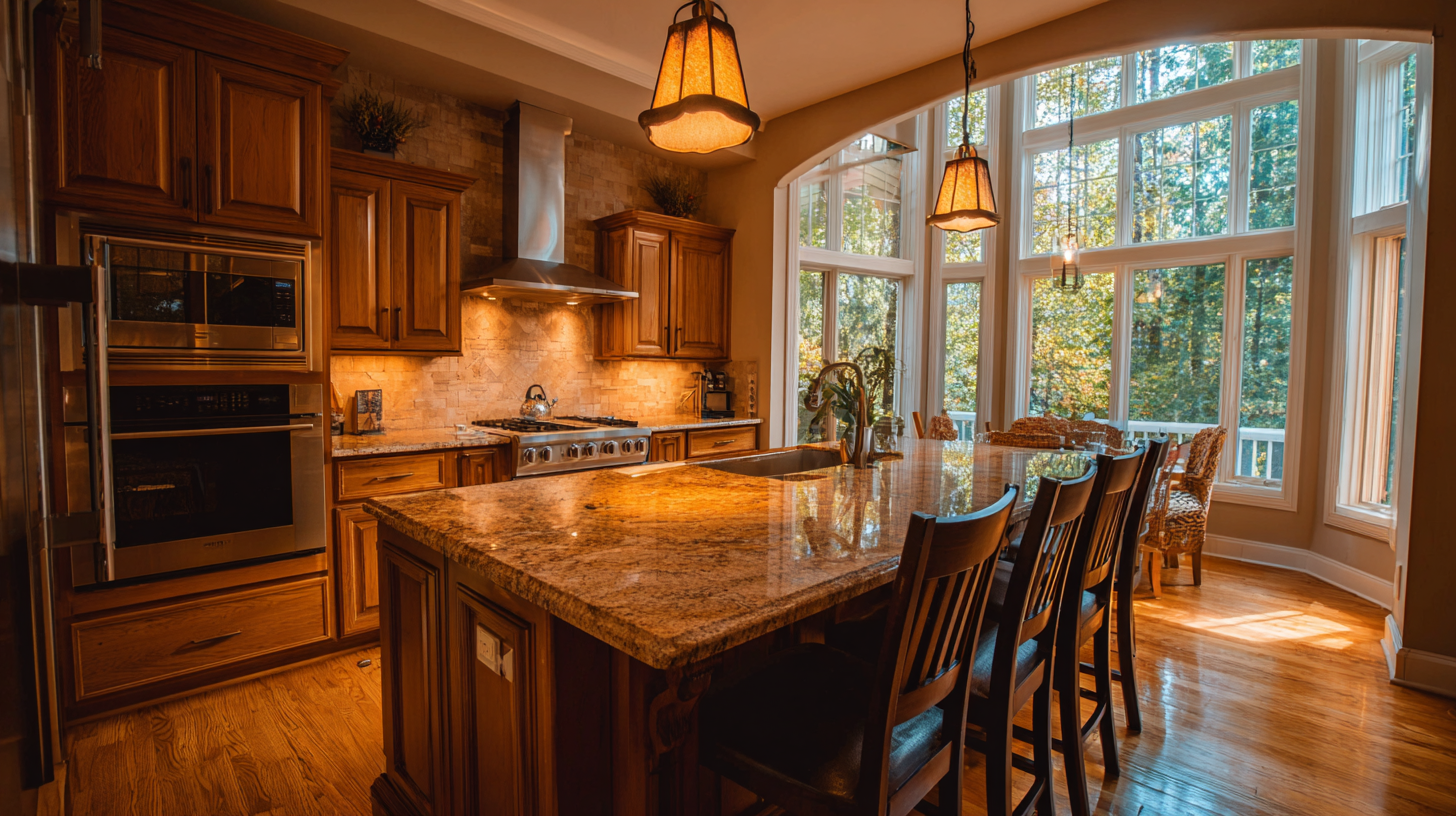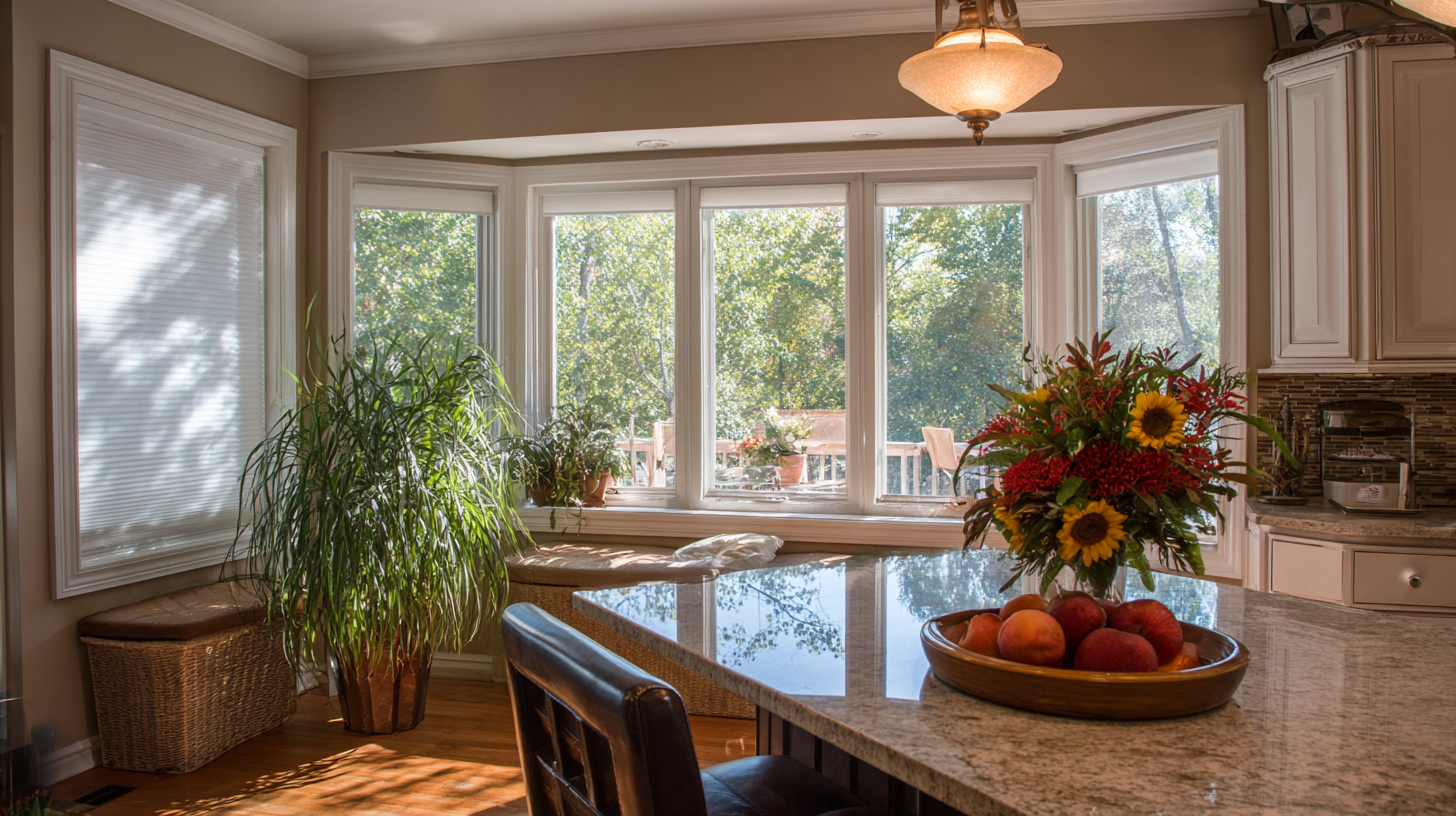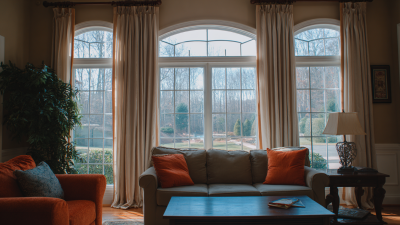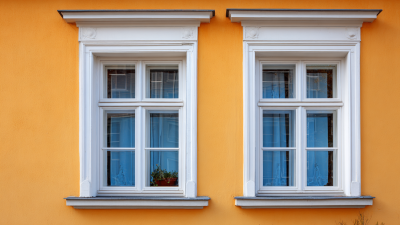7 Ways Window Financing Can Transform Your Home Improvement Budget
In today's rapidly evolving home improvement market, window financing has emerged as a transformative tool that can significantly enhance budgeting strategies for homeowners. According to the National Association of Home Builders, window replacement consistently ranks as one of the top home improvement projects, offering a remarkable return on investment, with an average of 70-80% recouped upon resale. Furthermore, a 2021 report by Remodeling Magazine highlights that energy-efficient window upgrades can lower energy bills by up to 15%, making financing options even more appealing. By leveraging window financing, homeowners can effectively manage the upfront costs associated with high-quality installations while simultaneously increasing their property's value and energy efficiency. This guide explores seven compelling ways window financing can reshape your home improvement budget, empowering you to make informed decisions and maximize your investment.

Understand Your Window Financing Options for Effective Budgeting
When it comes to home improvements, particularly window replacement, understanding your financing options is crucial for effective budgeting. According to the National Association of Realtors, window replacements can yield an impressive ROI of up to 71% when selling your home. However, the upfront costs can be daunting. This is where window financing provides a practical solution. With various options such as personal loans, home equity loans, or specialized financing plans, homeowners can spread the cost of these essential improvements over time, making budgeting much more manageable.
Research from the Remodeling 2021 Cost vs. Value Report shows that the average cost of a mid-range window replacement in the U.S. hovers around $19,000. By financing these upgrades, homeowners can avoid the initial financial strain and instead, allocate their budget towards other pressing needs. Furthermore, many financing options come with favorable interest rates, especially if you qualify for promotional deals from window manufacturers. By leveraging these financial tools, homeowners not only enhance their living space but also maintain better control over their overall budget, allowing for a more strategic approach to home improvement projects.

Evaluate the Long-term Savings of Energy-efficient Windows
Upgrading to energy-efficient windows can significantly impact your home improvement budget by delivering long-term savings that extend beyond just the initial investment. Energy-efficient windows are designed to minimize heat transfer, thereby reducing the reliance on heating and cooling systems. This translates into lower utility bills over time, making it a financially wise choice for homeowners looking to optimize their expenditure.
Furthermore, advancements in technology, including artificial intelligence, hold the potential to improve energy efficiency within residential buildings, enhancing the effectiveness of such upgrades. By evaluating and implementing these modern solutions, homeowners can not only reduce their energy consumption but also contribute to a lower carbon footprint. Sustainable practices in window selection and installation can create healthier living environments while providing substantial savings in energy costs, making the pursuit of energy efficiency a transformative aspect of home improvement budgeting.
Long-term Savings of Energy-efficient Windows
Explore Flexible Payment Plans to Enhance Your Financial Comfort
When considering home improvements, especially when it comes to windows, financing options can greatly alleviate the burden on your budget. Flexible payment plans allow homeowners to manage their expenses more effectively, transforming large one-time costs into manageable monthly payments. This dynamic approach not only makes high-quality window installations accessible but also minimizes financial strain, enabling homeowners to focus on the aesthetic and energy-efficient enhancements they desire.
Furthermore, tailored financing solutions are designed to cater to individual needs and situations. From zero-interest financing for those who want to pay off their windows seamlessly over a set time frame to low monthly installment plans that fit snugly within a monthly budget, there are various options available. Such flexibility empowers homeowners to make decisions based on their specific financial comfort, allowing them to invest in their homes without the fear of overwhelming debt. Ultimately, this financial freedom encourages homeowners to undertake significant upgrades that contribute to improved energy efficiency, aesthetics, and overall home value.
Maximize Your Home’s Value with Smart Window Investments
Investing in new windows is one of the smartest home improvement choices you can make. Not only do they enhance the aesthetic appeal of your property, but they also contribute significantly to its overall value. When considering window financing, focus on selecting windows that boost energy efficiency, as this can lead to substantial savings on utility bills and an impressive return on your investment.
**Tips for Maximizing Your Home’s Value with Smart Window Investments:**
1. Choose Energy-Efficient Windows: Look for windows with ENERGY STAR ratings to ensure you are making a choice that reduces energy consumption and lowers bills.
2. Prioritize Curb Appeal: Opt for window styles and colors that complement your home’s exterior. Eye-catching designs can attract potential buyers if you ever decide to sell.
3. Consider Long-Term Benefits: While upfront costs may vary, high-quality windows often require less maintenance and come with warranties, making them more cost-effective over time.
By leveraging window financing wisely, you can transform your home improvement budget into a powerful tool for enhancing your home’s value.

Utilize Grants and Incentives to Lower Upfront Costs
When considering home improvement initiatives, financing options can play a crucial role in easing the financial burden, especially through the use of grants and incentives. The U.S. Department of Energy projections indicate that utilizing energy-efficient windows can reduce heating and cooling costs by 12% to 15%. Many state and local governments offer grants to homeowners who invest in energy-saving upgrades, which can significantly offset initial costs. These grants often range from a few hundred to several thousand dollars, making them an attractive option for those looking to enhance their homes without draining their budget.
In addition to grants, federal and state-level incentives, such as tax credits, can further lower upfront expenditures. According to the American Council for an Energy-Efficient Economy (ACEEE), federal tax credits for energy-efficient home improvements are often around 10% of the expenses, with maximum credit limits that align with the total cost of your window upgrades. By leveraging these financial resources, homeowners can strategically allocate their budgets, allowing for more extensive renovations or enhancing their homes’ comfort and sustainability.
7 Ways Window Financing Can Transform Your Home Improvement Budget
| Method | Description | Potential Savings (%) | Eligibility Requirements |
|---|---|---|---|
| Federal Grants | Government funds to assist with energy-efficient upgrades. | Up to 30% | Varies by program and location |
| Local Incentives | City or state funds for home improvements. | 15-20% | Must be a resident |
| Energy Tax Credits | Tax deductions for energy-efficient installations. | 10-30% | Varies annually |
| Low-Interest Loans | Loans specifically for home improvement purposes. | N/A | Good credit required |
| Utility Rebates | Financial incentives offered by utility companies. | 5-25% | Account holder |
| Financing Programs | Flexible payment options available from contractors. | N/A | Credit approval needed |
| Home Equity Financing | Using your home equity to fund improvements. | Depends on equity | Home must have equity |
Related Posts
-

Exploring the Future of Window Replacements at the 138th Canton Fair in 2025 Insights and Trends
-

What is the True Cost of Window Replacement? A Detailed Breakdown with Industry Insights
-

5 Expert Tips for Windows and Doors Installation to Boost Energy Efficiency by 30 Percent
-

How to Choose the Perfect Exterior Windows for Your Home
-

How to Accurately Estimate Your Window Installation Cost Before You Buy
-

How to Choose Retrofit Windows for Energy Efficiency and Cost Savings
